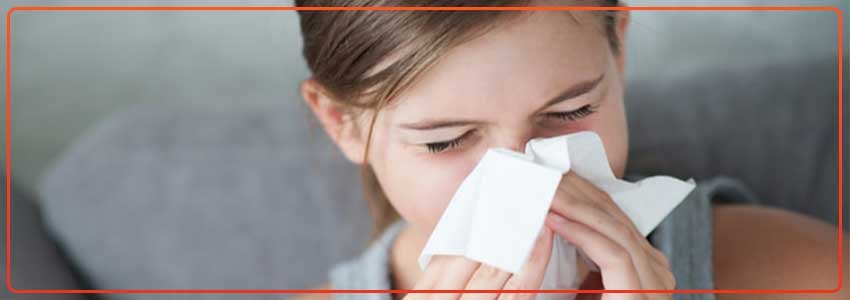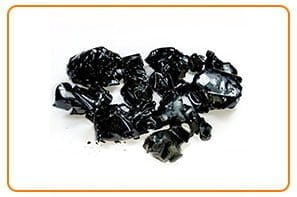If you’re like me, then a runny nose is the absolute worst. Not only does it make your nose feel sore and itchy, but it can also be incredibly frustrating when you can’t seem to stop it. Well, I’m here to tell you that there is a way to stop a runny nose in just five minutes! Keep reading for more information.
For most people, a runny nose is a minor annoyance. It’s annoying, but it’s not a major problem. However, for some people, a runny nose can be a sign of a serious condition, such as allergies, a cold, or even sinusitis. If you have a runny nose that is accompanied by other symptoms, such as a fever, it’s important to see a doctor.
There are a number of over-the-counter medications that can help to relieve the symptoms of a runny nose. However, these medications can have side effects, and they are not always effective. If you are looking for a natural way to stop your runny nose, there are a few things you can try.
In this article, we will share with you a few tips on how to stop a runny nose in 5 minutes. We will also share with you a few natural remedies that you can try at home.
Also Read: Nose Jobs Covered By Insurance – Everything You Need To Know
Top 20 home remedies for helping to stop a runny nose
A runny nose is a common symptom of colds, allergies, and sinus infections. While it can be annoying, there are some simple home remedies that can help to stop the drip.
Let’s have a look at some of the at-home cures for a stuffy nose.
Drink Plenty of Fluids
Drinking fluids is essential for keeping your body healthy and hydrated. But how much fluid does your body need? The amount varies depending on factors such as age, activity level, and climate. In general, adults should drink six to eight cups of fluid a day. However, if you are sweating a lot or have an illness that causes vomiting or diarrhea, you will need to drink more fluids to replace the ones you are losing.
Water is the best choice for most people, but if you are exercising vigorously or working in a hot environment, you may need to drink sports drinks or other fluids that contain electrolytes. By staying properly hydrated, you can keep your body healthy and minimize your risk of dehydration-related illnesses.
Use a Humidifier
A humidifier is a great way to add moisture to the air and improve your home’s indoor air quality. There are many benefits to using a humidifier, including reducing static electricity, relieving sinus congestion, and preventing dry skin.
Humidifiers come in all nose shapes and sizes, so you can choose one that fits your needs. Some humidifiers require regular maintenance, while others are low-maintenance. You can also choose from different types of humidifiers, including ultrasonic, warm mist, and cool mist. No matter what type of humidifier you choose, it’s important to clean it regularly to prevent the growth of bacteria and mold.
Drink Hot Beverages
Hot beverages can help to soothe a scratchy throat and ease congestion. They can also help you stay hydrated. Some of the best hot beverages for a stuffy nose include teas, soups, and broths. Just be sure to avoid drinks that are too hot, as they can burn your throat.
Gargle with Warm Salt Water
Gargling with warm salt water is a simple and effective way to relieve congestion and soothe a sore throat. To make the gargle, mix 1/4 teaspoon of salt into 8 ounces of warm water. Swish the mixture around in your mouth for 30 seconds, then spit it out. Repeat as needed.
Stay warm
Wearing warm clothing and staying in a warm environment can help to ease congestion by promoting drainage. This is because the warm air helps to thin the mucus in your nose. If you are having trouble staying warm, consider using a space heater or wearing layers of clothing.
Use a Nasal Spray
Nasal sprays can help to flush out the nasal passages and relieve congestion. They are available over the counter or by prescription. Some of the most common types of nasal sprays include saline, corticosteroids, and decongestants. Be sure to follow the instructions on the label carefully, as using the nasal spray too often can actually make congestion worse.
Apply a Warm Compress
Applying a warm compress to your face can help to ease congestion and pain. To make a compress, soak a clean cloth in hot water, wring it out, and apply it to your face. You can also use a heating pad set on low. Be sure to take a break from the compress every few minutes to prevent burns.
Use Steam
Inhaling steam can help to loosen congestion and make it easier to breathe. There are several ways to use steam, including taking a hot shower, sitting in a sauna, or using a humidifier or vaporizer. You can also make your own steam inhaler by bringing a pot of water to a boil and placing a towel over your head to trap the steam. Inhale the steam for 10 minutes, then take a break and repeat as needed.
Drink Herbal Tea
Herbal teas can help to soothe congestion and promote drainage. Some of the best teas for congestion include chamomile, peppermint, and ginger. Be sure to steep the tea for at least 5 minutes to get the full effect. You can also add honey or lemon to your tea to improve its taste.
Keep Your Head Elevated
When you are lying down, gravity can cause congestion to worsen. To help ease congestion, prop yourself up with pillows or sleep in a recliner. This will help to keep the mucus from draining into your throat and causing you to cough.
Drink Lots of Fluids
Drinking plenty of fluids is important when you are trying to get rid of congestion. This is because fluids help to thin the mucus and prevent dehydration. Some of the best fluids for congestion include water, juice, and herbal tea. You should also avoid caffeine and alcohol, as they can actually make dehydration worse.
Avoid Smoking
Smoking is a major cause of congestion. This is because smoke irritates the lining of the nose and throat, which can lead to inflammation. If you smoke, quitting is the best way to reduce congestion. If you cannot quit, try to avoid smoking around other people to prevent them from getting sick.
Avoid Irritants
There are many things that can irritate the nose and throat, making congestion worse. Some of the most common irritants include dust, pollen, smoke, and perfumes. If you are allergic to any of these substances, be sure to avoid them as much as possible.
Rinse Your Nose
Rinsing your nose with saline solution is a simple and effective way to relieve congestion. To make the solution, mix 1/4 teaspoon of salt into 8 ounces of warm water. Use a bulb syringe or neti pot to pour the solution into one nostril, then let it drain out the other. Repeat as needed.
Get a Massage
A neck or shoulder massage can help to relieve tension and promote drainage. To massage your own neck and shoulders, start by placing your hands on your upper back. Use your fingertips to knead the muscles in a circular motion. Work your way up to the base of your neck, then down to your lower back. For a more intense massage, you can use a tennis ball or foam roller.
Try Aromatherapy
Aromatherapy is a type of alternative medicine that uses essential oils to improve well-being. Some of the best essential oils for congestion include eucalyptus, peppermint, and tea tree oil. You can use these oils in a diffuser or add them to a hot bath.
Take a Hot Bath
Taking a hot bath can help to ease congestion by opening up the airways and loosen mucus. Add a few drops of essential oil to your bathtub for an even more relaxing experience. Be sure to drink plenty of fluids after your bath to avoid dehydration.
Use a Humidifier
Adding moisture to the air with a humidifier can help to relieve congestion. This is because dry air can irritate the nose and throat, making congestion worse. Be sure to clean your humidifier regularly to prevent the growth of mold and bacteria.
Try Over-the-Counter Medications
If home remedies are not enough, there are several over-the-counter medications that can help to relieve congestion. These include decongestants, antihistamines, and pain relievers. Be sure to follow the instructions on the label and talk to your doctor before taking any medication.
See Your Doctor
If your congestion is severe or does not improve with home treatment, you should see your doctor. They can prescribe medication or recommend other treatments. In some cases, congestion may be a sign of a more serious condition, such as a sinus infection or allergies.
Also Read: How to Pierce Your Own Nose at Home – A Step-by-Step Guide
How to Get Rid of a Runny Nose as a Result of an Allergy
If you suffer from seasonal allergies, then you’re probably all too familiar with the misery of a runny nose. While there’s no cure for allergies, there are a few things you can do to get rid of a runny nose and feel better fast. First, try taking an over-the-counter antihistamine.
This will help to reduce swelling in the nasal passages and calm down the production of excess mucus. You can also use a saline nasal spray to flush out the allergens and relieve congestion. Finally, be sure to drink plenty of fluids, as this will help to thin out the mucus and prevent dehydration. With these simple tips, you can say goodbye to your runny nose.
Helpful Tips For Dealing With a Runny Nose:
A runny nose is an indication of an immunological reaction. Your immune system is operating normally, which may make you feel more weary than usual. Even if you don’t have any additional symptoms, you should take it easy on yourself. Drink plenty of fluids and get some rest.
- Get plenty of sleep: A well-rested body is better equipped to fight off infection.
- Keep yourself hydrated: This will help to thin out the mucus and prevent dehydration.
- Exhale deeply and loudly: This helps to clear the nasal passages.
- Hands should be washed: Washing your hands regularly will help to prevent the spread of infection.
- Avoid touching your face: Touching your eyes, nose, or mouth can lead to the spread of infection.
- Avoid sharing personal items: Sharing cups, utensils, or towels can also lead to the spread of infection.
- Clean the room: Keeping your living space clean will help to reduce the amount of allergens in the air.
- Vacuum regularly: This will help to reduce the amount of dust in the air.
- Use an air purifier: An air purifier can also help to reduce the amount of allergens in the air.
- Keep pets out of the bedroom: If you’re allergic to pet dander, it’s best to keep them out of your bedroom to avoid triggering an allergic reaction.
- Stay home and relax: If your symptoms are severe, it’s best to stay home and rest until you feel better.
With these tips, you can get rid of a runny nose fast. However, if your symptoms are severe or persist for more than a few days, it’s best to see a doctor. They can rule out any other potential causes and recommend the best course of treatment.
Also Read: Nose Job Gone Wrong – How to Handle a Not-So-Perfect Nose Job
Frequently Asked Questions
Q: What causes a runny nose?
A: A runny nose can be caused by a number of things, including allergies, the common cold, and sinus infections.
Q: How can I get rid of a runny nose fast?
A: There are a few things you can do to get rid of a runny nose fast, including taking an over-the-counter antihistamine, using a saline nasal spray, and drinking plenty of fluids.
Q: What should I do if my runny nose is severe?
A: If your runny nose is severe or does not improve with home treatment, you should see your doctor. They can prescribe medication or recommend other treatments. In some cases, congestion may be a sign of a more serious condition, such as a sinus infection or allergies.
Q: Is it normal to have a runny nose all the time?
A: If you have a runny nose all the time, it’s best to see your doctor. They can rule out any potential causes and recommend the best course of treatment. In some cases, a runny nose may be a sign of an underlying condition, such as allergies or a sinus infection.
Q: What kills runny nose?
There is no one “cure” for the common cold or runny nose. However, there are a few things you can do to help relieve your symptoms, including taking an over-the-counter antihistamine, using a saline nasal spray, and drinking plenty of fluids. If your symptoms are severe, you should see your doctor. They can prescribe medication or recommend other treatments.
Q: How do I stop my runny nose from dripping down my throat?
A: There are a few things you can do to stop your runny nose from dripping down your throat, including taking an over-the-counter antihistamine, using a saline nasal spray, and drinking plenty of fluids. You can also try to keep your head elevated and avoid lying down.
Q: Why is my runny nose clear?
A: A clear runny nose is often the result of allergies or a cold. However, it can also be a sign of a sinus infection. If your runny nose does not improve with home treatment, you should see your doctor.
Q: How do I stop sneezing and runny nose ASAP?
A: You can try to stop sneezing and runny nose by taking an over-the-counter antihistamine, using a saline nasal spray, and drinking plenty of fluids.
Q: How do I unblock my nose at night?
A: There are a few things you can do to unblock your nose at night, including taking an over-the-counter antihistamine, using a saline nasal spray, and drinking plenty of fluids. You can also try to keep your head elevated and avoid lying down.
Q: Why does one nostril get blocked?
A: One nostril may become blocked due to allergies, a cold, or sinusitis. If your symptoms worsen or do not improve with home treatment, seek medical attention.
Q: How can I reduce the amount of allergens in the air?
A: There are a few things you can do to reduce the amount of allergens in the air, including dusting and vacuuming regularly, using an air purifier, and keeping your windows closed. You can also try to avoid being outdoors when pollen counts are high.
Q: Can a runny nose be a sign of something serious?
A: In some cases, congestion may be a sign of a more serious condition, such as a sinus infection or allergies. If your symptoms are bad or don’t improve with home treatment, you should visit your doctor.



